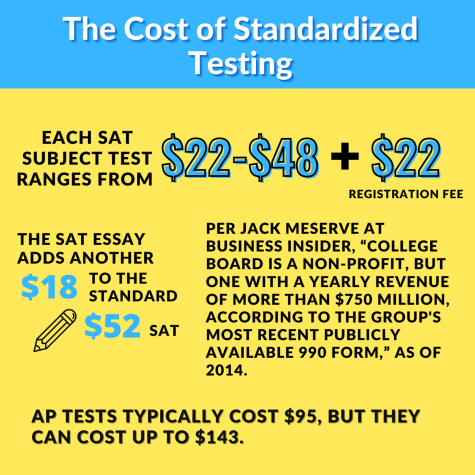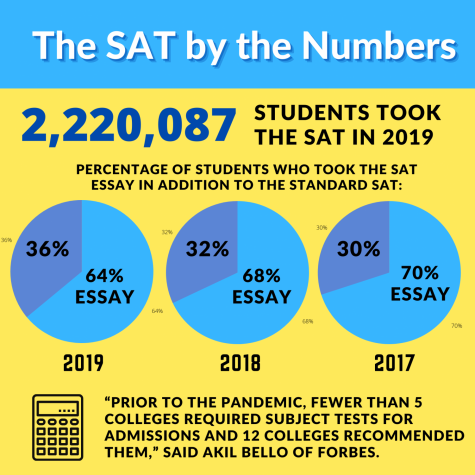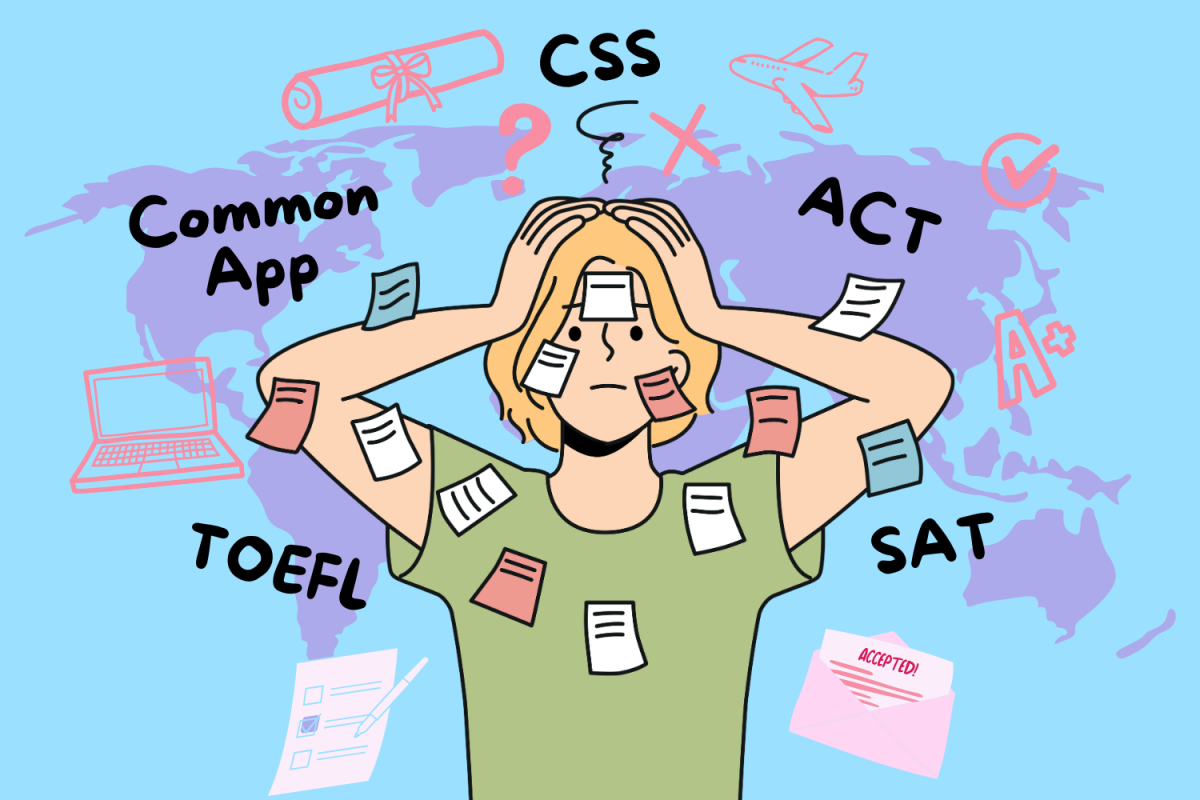Junior year of high school is stressful enough with college applications quickly approaching; add standardized tests into the mix and you have a recipe for disaster. The SAT prep book became my Bible, and my backpack overflowed with dreary gray practice test packets during the weeks before my exams. The stakes were high: a simple grammar mistake or arithmetic error could crush one’s dreams.
My peers and I watched as our mental health and self-images declined rapidly, especially after scores were released. A competitive culture was established as we compared our scores and standards to both each other and students nationally—thanks to the College Board’s personalized score analyses—on top of constantly lining ourselves up against the requirements of colleges and universities.

Even then, I realized it wasn’t fair that one’s education and career could be drastically affected by a number. You’d think I’d be excited over College Board’s recent decision to eliminate SAT subject tests and the SAT essay. Don’t get me wrong: the fewer standardized tests and requirements for college applicants, the better. Students will be able to focus their efforts on other aspects of their education and application without worrying about additional tests. Also, this move lessened financial barriers that standardized tests pose: each SAT subject test ranged from $22-$48 with a registration fee of $22, and the SAT essay added an extra $18 to the standard $52 SAT. Additionally, racial and socioeconomic disparities that have historically impacted students’ scores will have less of an effect on the college application process.
However, College Board’s claim of “making some changes to reduce demands on students,” per their blog, thinly veils their likely underlying economic motive to make this change. Not only does College Board continue to exploit students and families through their financial moves, but they also mock students’ high stress and attempts to succeed.
Out of the 2,220,087 students who took the SAT in 2019, only 64 percent (1,410,113 students) also took the SAT essay, down from 68 percent in 2018 and 70 percent in 2017. Even more drastically, in 2018, 2,136,539 students took the SAT, while only 220,000 students took SAT subject tests.
The reason for dropping numbers likely lies in how most colleges don’t require these tests. While some programs, schools and majors, typically those in STEM fields, require specific subject tests, most colleges have strayed from requiring them for standard admission.
“Prior to the pandemic, fewer than 5 colleges required Subject Tests for admissions and 12 colleges recommended them,” per Akil Bello of Forbes.
Colleges’ departure from standardized testing may be an attempt to make applications more affordable for families, emphasize a more holistic admissions process or lessen academic burdens on students. Whatever the reason may be, it’s definitely impacting College Board and its finances. For the economics majors out there, this is a classic dilemma: without a large number of students paying for SAT Subject Tests and the SAT essay, the costs of administering the tests increases, potentially to the point where it’s greater than income from the tests. Don’t forget: the College Board is a business.
Per Jack Meserve at Business Insider, “College Board is a non-profit, but one with a yearly revenue of more than $750 million, according to the group’s most recent publicly available 990 form,” as of 2014.

College Board’s reasoning behind their recent decision becomes abundantly clear when considering the above information. It simply doesn’t make sense for a business to offer products that impair its financial outlook, especially during a pandemic that has otherwise hurt them economically. So, with this logic, what’s the big deal?
Despite College Board’s clear economic motivations in eliminating SAT subject tests and the SAT essay, they claim their primary overall mission is to offer services that improve student’s educational outlook, asserting that they are an ally for students.
“The College Board was created to expand access to higher education…and is dedicated to promoting excellence and equity in education,” the College Board’s ‘About Us’ page reads. “The organization also serves the education community through research and advocacy on behalf of students, educators and schools.”
Given this, it’s unacceptable for College Board to cover a financial decision with the facade of helping students reduce stress. This contradicts their mission statement and further draws the divide between students and higher education organizations and their partners, creating an “us” versus “them” culture.
Moreover, College Board encourages students to take Advanced Placement (AP) tests instead of SAT subject tests, claiming they benefit students’ learning and educational experience to a greater extent.
“The expanded reach of AP and its widespread availability means the Subject Tests are no longer necessary for students to show what they know,” College Board’s blog post reads.
However, this assertion also holds an economic factor: AP tests are typically $95, but can be up to $143, more than double the price of SAT subject tests. While some colleges accept AP exam scores for credit, allowing students to save money, the substantial price difference in the exams further reinforces their pretense of being an advocate for students.
Dear College Board: speaking on behalf of my peers who have, are or will be engaged in the college application process, our stress, worries and finances are not a joke.
Using our ambition to succeed professionally and academically to your advantage to earn a profit is, quite frankly, pitiful; taking advantage of teenagers is not a good look. There is no need to pretend that we don’t see your true motives—you taught us to critically think, after all.
Students should be able to trust decisions made by higher education corporations without having to analyze their economic and business motives when deciding how and where to apply to college. College Board’s elimination of SAT subject tests and the SAT essay only forces students to turn their attention to AP exams, restarting the cycle of unnecessary analysis, anxiety and stress. Students should be able to pursue their academic and career goals without being subject to deliberate mental, emotional and financial burdens imposed by an educational monopoly. If College Board truly cares about their students, they will focus their efforts on improving students’ educational experience via decisions that academically guide them and lessen financial constraints, regardless of the consequential financial effect on their business. Otherwise, they need to drop their front of being for the students.







